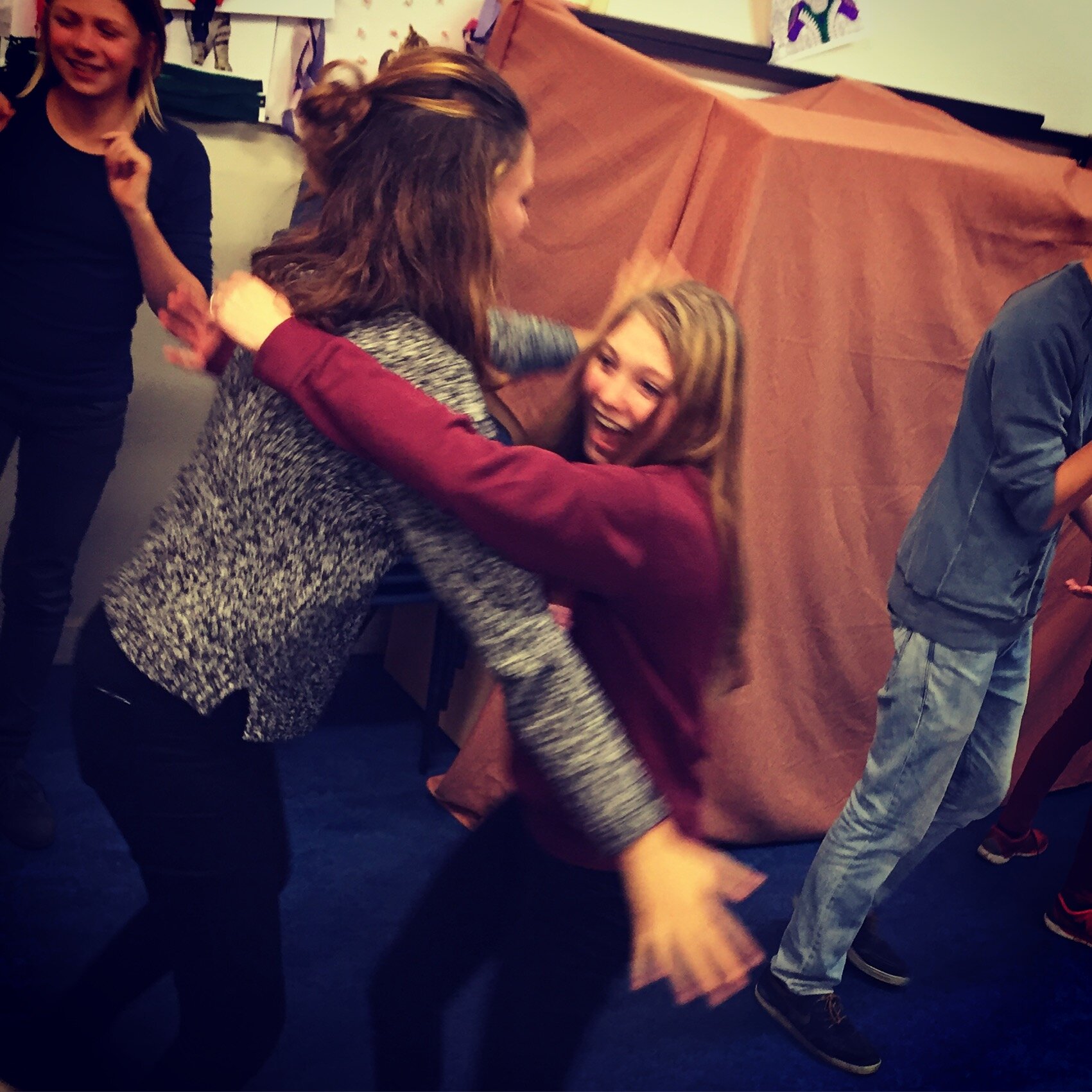Tip & Exercise: How to teach teenagers
I believe that we can have more different types of people as improv teachers. To encourage you to start, or to improve your teaching, every month I will share with you a tip and an exercise.
Tip: Assume the best
Teaching improv to teenagers difficult? Let’s talk.
I started teaching teenagers when I still was one myself. At age 19 I got a (paid) job to teach students only a few years younger. I am now almost double that age, and let me tell you: teaching teenagers is not easier (or harder) when you are younger.
Teaching teenagers is just… Different. One thing is certain: lots of things are happening in the life of a teen. Growing up, interacting with peers and adults, independence, dependence, finding out who you are (and whether you like that person): between ages 12-16 years students are dealing with a whirlwind.
If you then find them in your improv class, it is good for us teachers to practice ‘assuming the best’. Because sometimes their confusion looks like a lack of interest. Other times their wish for being seen, looks like a provocation.
When recently I was dealing with a big group of 13-year olds not engaging, interrupting, and even straight out lying in my improv class, I repeated this motto to myself. Assume the best. They are not out to get me. They are just juggling their own hormones.
Once you realize (and accept) that, you can start looking for fun things to do within the reality of ‘the teenage world’.
Exercise: Setups from their life
After the class that went… ‘suboptimal’, I came back with a game plan. From previous years, I remembered what topic teens love: their own life.
And so I brought scene setups that were related to their reality. In the setups, I mention characters, location, and dilemma. (Dutch folks might know this as De Vloer Op)
Here are some examples:
A teenager has an after-school job, with a very enthusiastic boss. However, the boss has been saying their name wrong for months. Today, before work starts the teenager will tell their boss.
A school student notices something potentially dangerous in the school (e.g. the start of a fire) and goes up to the janitor to warn them. The genitor is known for doing everything they can to not get up.
This is a therapy session for 5 phone addicts. One of you is the facilitator who has a special, but unusual group exercise to help kick the addiction.
You can also add some secret elements to the setups.
We see a worried parent waiting at home. Two hours later than agreed upon, their two teenage children come through the door.
Children, turn your backs to the audience and show with a thumbs up or down whether you have an actual sincerely good reason to be late, or not.
You are 3 friends during your lunch break at school. You had the idea to all go to the same summer camp and now you are discussing the concrete plan.
Give secret assignments to each player individually. One cannot go anymore because there is no money to pay for it. One doesn’t want to go anymore but is afraid to lose their friends. One is looking so much forward: finally, one good thing after a rough year at school.
Feel free to take inspiration from your students. This last setup was based on what my students were talking about when entering the classroom: looking forward to summer camp. In the scene setup, I added a layer of dilemma.
Remember: teenagers can both be challenging brats and phenomenal students. All in one class. Enjoy the ride!
This article appeared in Status - magazine for improvisers
For just €10 a year you get 12 magazines full of interviews, insights and worldwide calendars.
Liked this?
I have a fun & actionable newsletter full of stuff like this. And more.
(Unsubscribing is easy-peasy, so why not give it a shot?)

